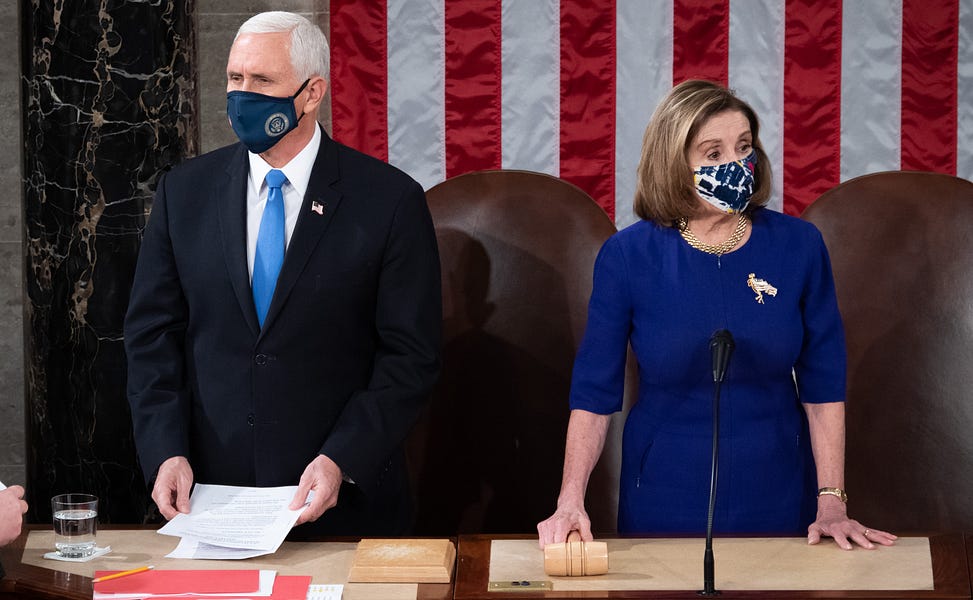President Trump has claimed in a series of tweets that Vice President Mike Pence has the power to reject electoral votes results at today’s joint session of Congress. As vice president, Pence leads the session where the electoral votes are opened and counted.
This is a false claim. The vice president does not have the power to reject electoral votes.
Rebecca Green, law professor and co-director of the election law program at William and Mary said in an email to The Dispatch Fact Check that “the notion that U.S. vice presidents have the unilateral power to overturn the will of voters as expressed through state vote certifications is as wrong logically as it is legally.”
“As a matter of logic, why should Americans bother voting if vice presidents (who are very often on the ticket) could simply install themselves and their boss when Congress meets?” she wrote. “As a matter of law, both the 12th Amendment and the Electoral Count Act clearly delineate a ministerial role for the Vice President in presiding over the count of Electoral College votes.”
The 12th Amendment states: “The President of the Senate shall, in the presence of the Senate and House of Representatives, open all the certificates and the votes shall then be counted.”
The Electoral Count Act of 1887 details much of the process of counting electoral votes in Congress. Green says that the act “provides multiple protections that compel Congress to recognize Electoral College votes from states that certify their election results prior to the safe harbor deadline (this year December 8).” Green also said that “[A]t no point in the process does law or practice dictate that the vice president has decision making authority to count or not count votes.”
She detailed the process as follows:
“The vice president presides over the joint session, which means he or she sits in the Speaker of the House’s chair and has the “power to preserve order.” (3 U.S.C. §§ 15, 16, 18). This power is not substantive: It is the standard obligation of a presiding officer in a chamber of Congress to preserve order and decorum among lawmakers and in the galleries (See Standing Rules of the Senate XIX.4, XIX.6, S. Doc. 113-18 (Jan. 24, 2013); Rules of the House of Representatives I.2, 116 Cong.). During the joint session, the vice president is required to open, in alphabetical order by state, “all the certificates and papers purporting to be certificates of the electoral votes.” (§15) After opening all such returns from a state, the vice president hands them to four “tellers” who read the results and record the votes. “
Aziz Huq, a law professor at the University of Chicago, also explained in an email that “the vice president’s role, per constitutional text and 200 plus years of practice, does not include the authority to cast doubt on states’ slates of electors.”
Only moments before the joint session, Pence issued a statement stating that he would not interfere in Congress’ count.
“As a student of history who loves the Constitution and reveres its framers,” said Pence, “I do not believe that the Founders of our country intended to invest the Vice President with unilateral authority to decide which electoral votes should be counted during the Joint Session of Congress, and no Vice President in American history has ever asserted such authority.”
If you have a claim you would like to see us fact check, please send us an email at factcheck@thedispatch.com. If you would like to suggest a correction to this piece or any other Dispatch article, please email corrections@thedispatch.com.









Please note that we at The Dispatch hold ourselves, our work, and our commenters to a higher standard than other places on the internet. We welcome comments that foster genuine debate or discussion—including comments critical of us or our work—but responses that include ad hominem attacks on fellow Dispatch members or are intended to stoke fear and anger may be moderated.